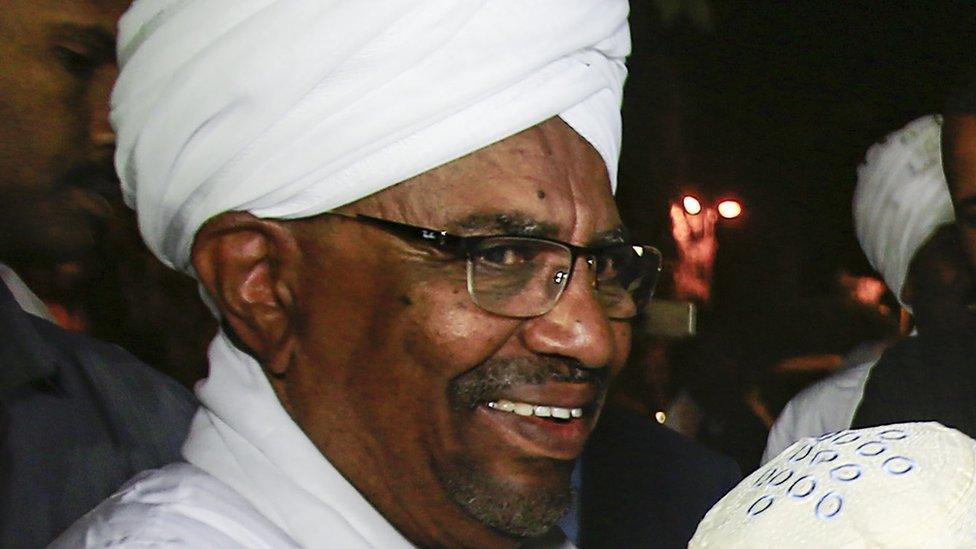Omar al-Bashir ousted: How Sudan got here
- Published
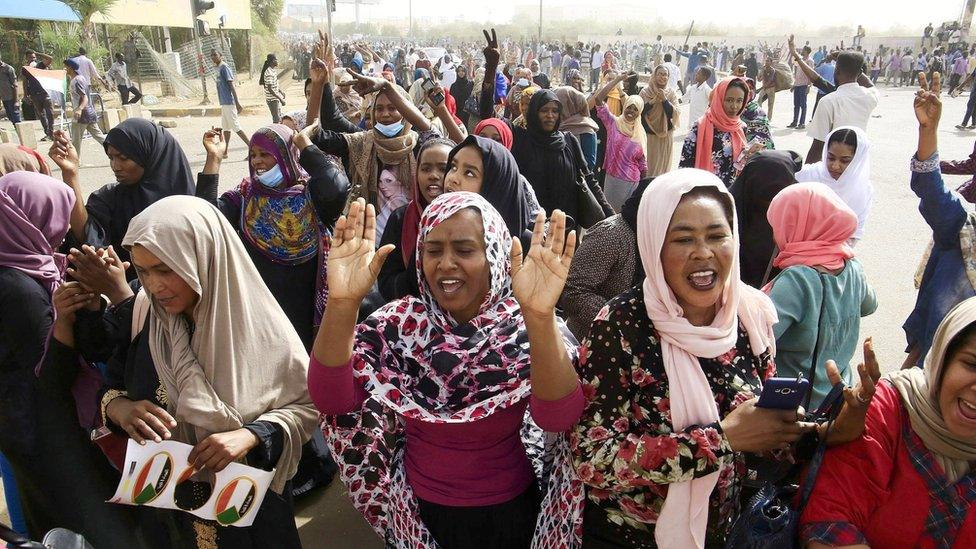
Protesters celebrate amid rumours over President Omar al-Bashir's fate
Sudan's President Omar al-Bashir has been ousted and arrested following months of protests, the army has announced.
It is a momentous move - Mr Bashir had been in power for nearly 30 years and was a severe and uncompromising ruler.
The BBC looks at five significant moments that explain how we got here.
30 June 1989: General Bashir comes to power
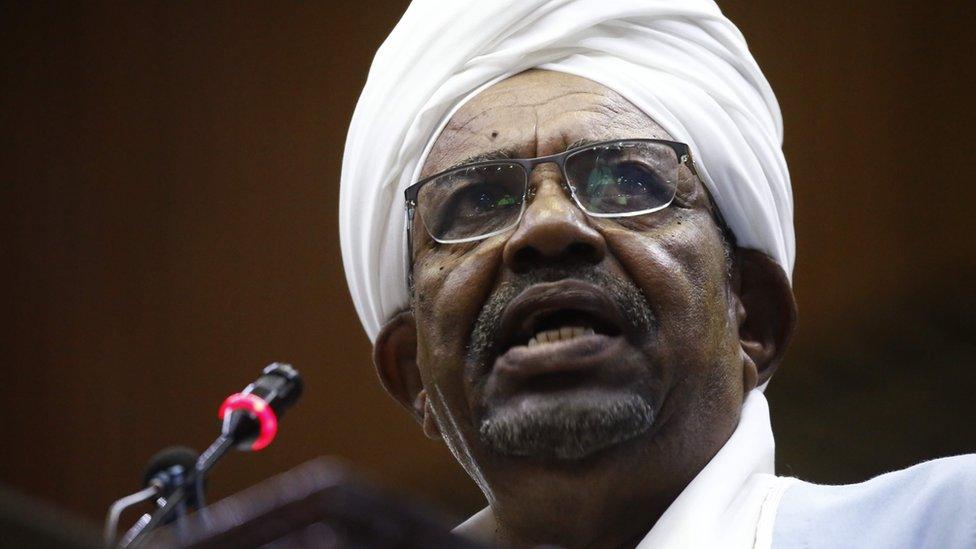
Mr Bashir seized power in a military coup in 1989, amid a long civil war between Sudan's north and south.
During his time in power, he was accused of war crimes during the Darfur conflict, which began in 2003 when rebels took up arms at alleged government discrimination. Hundreds of thousands were killed in the crisis.
The International Criminal Court (ICC) indicted Mr Bashir on charges of crimes against humanity and genocide - although the investigation was eventually suspended due to a lack of UN support.
However, Mr Bashir went on to win his first term as an elected president in polls in 2010.
9 July 2011: South Sudan becomes independent
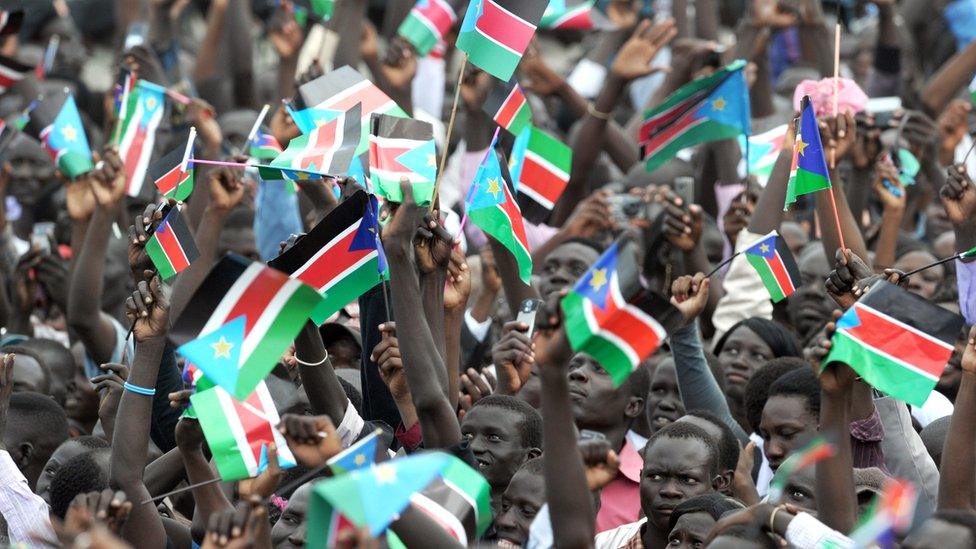
99% of South Sudan voted for independence
In 2011, following a referendum, South Sudan gained independence from Sudan. The referendum had been part of a peace deal agreed between Mr Bashir and rebels from the south.
However, the split had significant financial repercussions, because South Sudan gained 75% of the territory's oil.
Sudan's economy - which had already been strained by more than a decade of US sanctions - was hit hard.
The government imposed austerity measures and cut subsidies in response to the drop in oil revenue - but this lead to waves of protests as prices for basic goods shot up.
The government responded by dispersing protesters, arresting opposition politicians, and censoring the media.
Meanwhile, Mr Bashir was re-elected in 2015 in a vote boycotted by the opposition.
19 December 2018: Anti-austerity protests
In late 2017, the US lifted some sanctions on Sudan. However, the economy continued to deteriorate - by November 2018, inflation was at almost 70%.
As the Sudanese pound plummeted in value, the government imposed emergency austerity measures and cut fuel and bread subsidies.
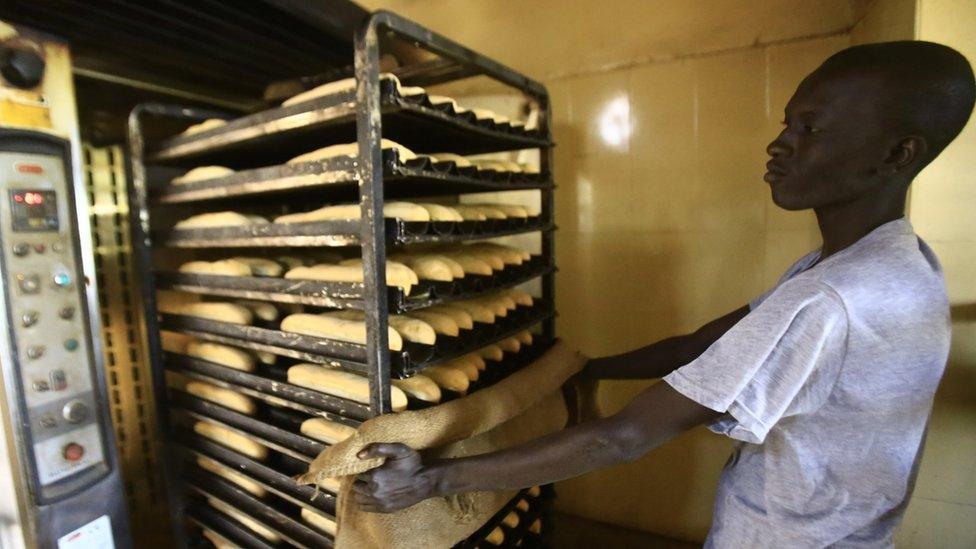
Many had to wait more than an hour to buy bread
This triggered waves of mass protests across the country in December. The protests were initially focused on living costs - but soon demonstrators also started demanding that Mr Bashir step down.
More than 1,000 protesters were reportedly detained by government forces.
22 February 2019: State of emergency
In February, Sudan's National Security and Intelligence Services said that Mr Bashir would step down.
However, Mr Bashir was defiant, declaring a national state of emergency, dismissing the federal government and replacing all state governors with members of the security forces instead.
He also tried to placate protesters, saying he would stand down at the end of his term in April 2020 and not seek re-election. However, this was not enough for demonstrators - and critics argued he had previously pledged to step down and then gone back on his word.
6 April 2019: Protesters close in on the army headquarters
Thousands of demonstrators reached the military headquarters - which is near the presidential compound - for the first time.
A woman dubbed 'Kandaka', which means Nubian queen, has become a symbol for protesters
Thousands camped outside throughout the week - and while security forces used tear gas and made arrests, the police ordered officers not to "intervene against the citizens or peaceful rallies".
The police said they supported the "peaceful transition of power".
According to analysts, the military and security forces were also divided on how to respond, with reports that army officers wanted to avoid violence, while security chiefs and some paramilitary groups were ready to use lethal force.
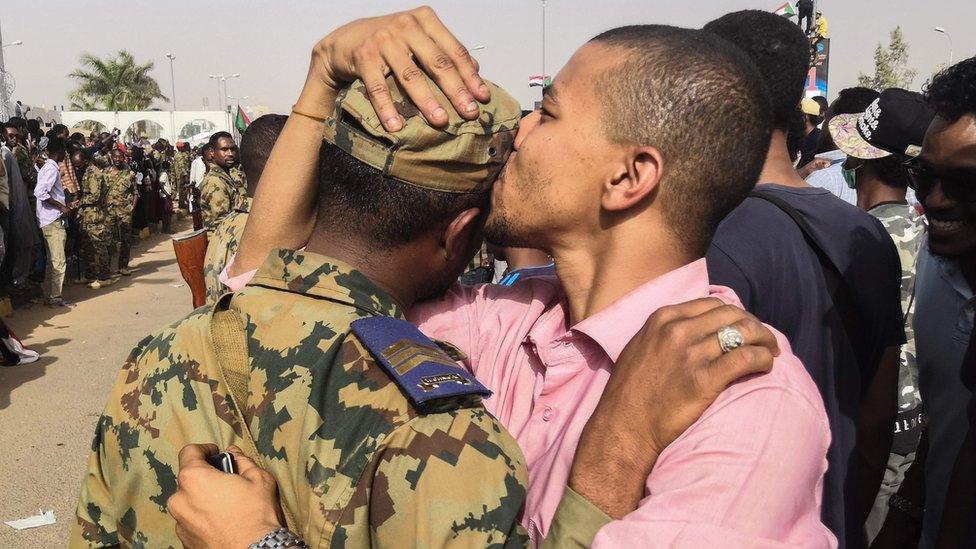
Some soldiers stepped in to protect protesters
On the ground, some individual army units started intervening to protect protesters from security agents.
On 11 April, the military announced that Mr Bashir had been ousted and arrested.


- Published10 April 2019
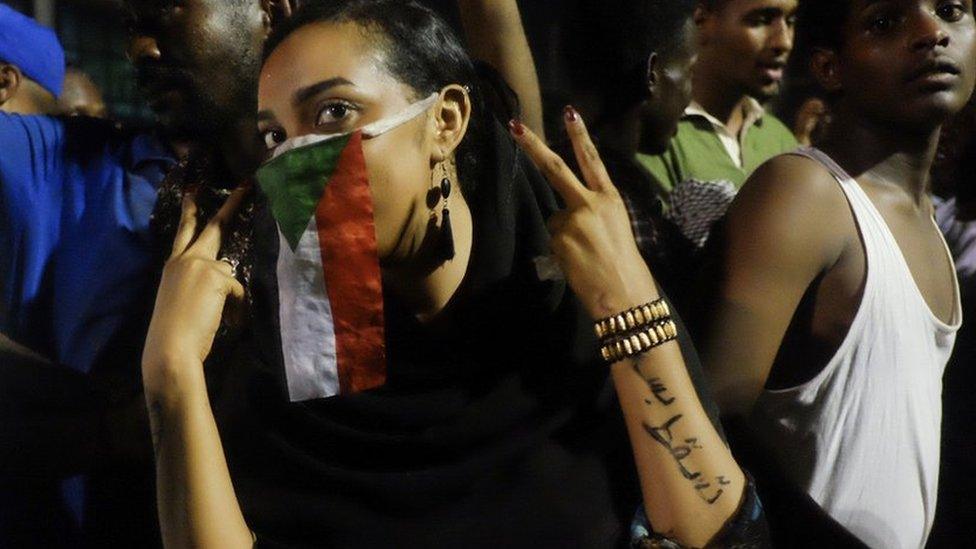
- Published9 April 2019
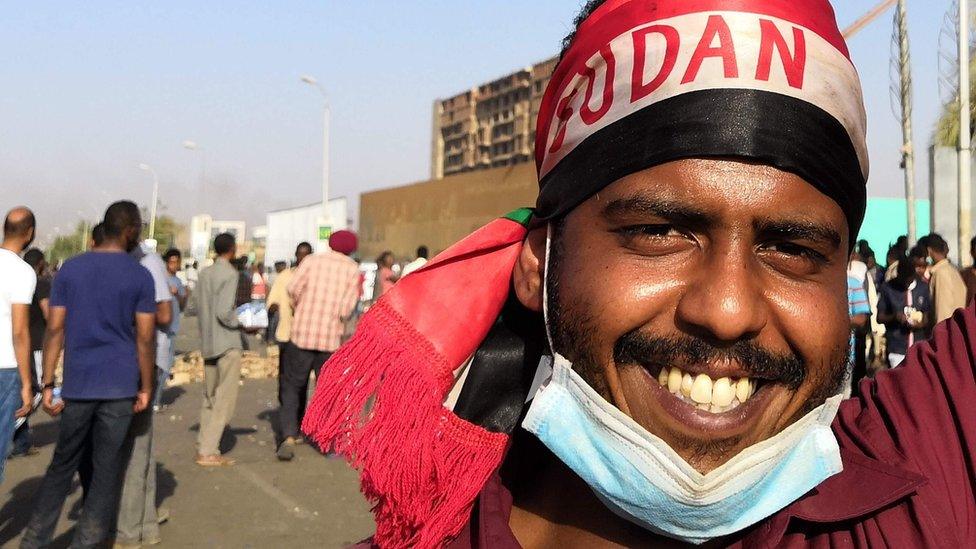
- Published11 April 2019
